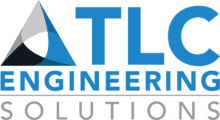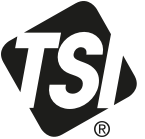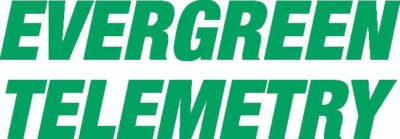Missed CxEnergy Virtual but need Continuing Education Units?
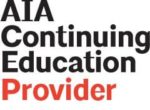
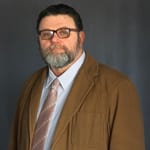
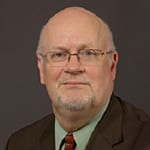
Commissioning for Reliability and Resiliency – Lessons Learned
Approved for 1 AIA LU
Jim Magee, CxA, EMP, Facility Commissioning Group
Bob Knoedler, P.E., CxA, EMP, Hanson Professional Services, Inc.
(recording of this session will be available Summer 2020)
The ability of critical systems to anticipate, resist, respond, adapt, and recover from a failure or disturbance – from natural disasters to intentional attacks to human error – can have huge consequences, and owners of critical facilities are adding formal resiliency plans to their risk management. This course will explore commissioning’s role including appropriate metrics, examples of vulnerabilities facing facilities today, and discussion of several case studies where additional planning could have mitigated disruptive or catastrophic events.
Learning Objective 1:
Expose audiences to some of the resilience vulnerabilities facing owners, their infrastructure, and facilities today, and potential consequences associated with failures/disruptions/outages.
Learning Objective 2:
Learn the importance of reliability, resiliency, and security in various facilities, their infrastructure and systems, and how commissioning can contribute in developing and managing resiliency.
Learning Objective 3:
Review metrics for evaluating reliability and resiliency, and balancing the costs and benefits associated with implementation.
Learning Objective 4:
View case studies where attention or inattention to system reliability/resiliency may have mitigated or caused catastrophic consequences.

“Balancing Act”: Strategies and Lessons Learned from Companies that Do Both TAB and Commissioning
Approved for 1 AIA LU
Justin Garner, P.E., CxA, TBE, Engineered Air Balance
This course will address ways to differentiate services within your team and explain to clients that there is not a “fox guarding the hen house”, and ways to promote combined services as a discounted approach and efficiently provide Total System Balancing and a complete Building Commissioning process.
Learning Objective 1:
Learn to evaluate deliverables of both the TAB and Cx processes that would overlap in scope.
Learning Objective 2:
Learn to develop a process to differentiate services between TAB and Cx personnel in order to meet the client’s objectives for the Cx process with minimal overlap or perceived conflict of interest.
Learning Objective 3:
Learn the correct roles of the TAB and Cx teams during the early construction, equipment startup, testing and acceptance and closeout / warranty phases of a project.
Learning Objective 4:
Learn how the TAB and Cx teams can cooperate and help one another to efficiently complete their respective scopes, thus providing a higher quality Cx process for the Owner.

Succeed When You Leave: Strategies for Ensuring Persistence of Savings on Energy Projects
Approved for 1 AIA LU
Paul Raschilla, EMP, Acceptance Engineering
Drawn from the Energy Management Association’s new O&M personnel training seminar created for utility incentive programs, this course demonstrates how to develop a plan to defeat drift and ensure continuous savings in energy projects. Topics covered include producing an M&V plan, training O&M staff, ongoing Cx, implementing CMMS/FDD programs, and developing serviceable documentation. This session will show energy managers how to create existing and ongoing value for building owners.
Learning Objective 1:
Recognize the industry accepted standards and guidelines for M&V, including the International Performance Measurements and Verification Protocol (IPMVP) and ASHRAE Guideline 14-2014.
Learning Objective 2:
Understand the multi-step process for M&V, including the various approaches (options) establishing implemented measures’ baseline performance and activities to verify projected improvement(s).
Learning Objective 3:
See how advancement and expansion in power monitoring, sub-metering, and data analytics has advanced the availability and accuracy of M&V procedures
Learning Objective 4:
Understand the enduring value created by training O&M staff, ongoing Cx, implementing CMMS/FDD programs, and developing serviceable documentation.


Children’s Hospital of Atlanta Case Study – Highly Effective Commissioning
Approved for 1 AIA LU
Jacob Terry, CxAlloy
John McFarland, WorkingBuildings
This discussion of an “above and beyond” commissioning effort on two new medical office buildings for Children’s Healthcare of Atlanta puts special focus on how additional effort did not sacrifice project profitability. The course will show how the commissioning firm exceeded stakeholder expectations (and took on more responsibility as the projects progressed) by drawing on experience with past medical facilities and fully leveraging commissioning management software.
Learning Objective 1:
Coordinate the quality assurance/quality control process across the entire project team.
Learning Objective 2:
Streamline and enhance delivery of closeout documents important for the facility operations team.
Learning Objective 3:
Record and verify key equipment attributes to aid in development of facility preventative maintenance and inventory tracking.
Learning Objective 4:
Lessons learned on coordination of room numbers across multiple disciplines during design and then into the facility’s wayfinding system.

Healthcare Emergency Power Supply Systems Commissioning: Clearing Communication Hurdles
Approved for 1 AIA LU
Jason Perigo, SSRCx
Case studies from four different hospital commissioning projects will illustrate identifying and managing obstacles when planning and implementing functional performance testing of emergency power supply systems for new and existing hospitals. The coordination effort to achieve successful functional testing of a large hospital system can be overwhelming and time consuming, but with the right planning and attention to detail it can be rewarding and valuable to clients.
Learning Objective 1:
Emergency Power Supply System (EPSS) per NFPA 110 with practical descriptions of the typical system that may be encountered.
Learning Objective 2:
EPSS sequence of operation – getting the right information and how to use it.
Learning Objective 3:
Identify EPSS team players (who, what, when).
Learning Objective 4:
Functional Testing Day, what it looks like and how to prepare.

Multi-Phased Commissioning on an International Airport in Aruba
Approved for 1 AIA LU
Kelly Adighije, LEED AP, Baumann Consulting
Queen Beatrix International Airport serves more than 2.5 million passengers annually. The 5-year Gateway 2030 project, the first major expansion in 20 years, includes an MEP system upgrade, relocation of the Facility Energy Centre and baggage handling system, and the facility’s first sophisticated building automation system. This course will cover commissioning the expansion, the existing facility upgrade and associated BMS integration, through a blend of remote platform-based CX software, and traditional boots-on-the-ground means.
Learning Objective 1:
Attendees will learn about the Aruba Airport Authority Project which includes – Gateway 2030, Existing Facilities Upgrades, Utility Building, Building Management Systems projects and how Baumann Consulting engaged with the multiple stakeholders and different project teams in such a complex, multi-phased project.
Learning Objective 2:
Attendees will learn about some example commissioning communication tools for interacting initially with the international design phase teams and how the knowledge transfer was then conducted to the construction phase teams as they were brought on for the different project phases
Learning Objective 3:
Attendees will be presented with case study examples of commissioning checklists that were coordinated and created by Baumann Consulting for the different construction teams listed in objective 1 above.
Learning Objective 4:
Attendees will learn how Baumann is planning the knowledge transfer from the created commissioning checklists, to the Owner’s Facilities Management Teams for the tracking of issues and defects during the occupancy phase.

Signal to Noise Ratio: Can You Hear (See) Me Now?
Approved for 1 AIA LU
Wayne Dunn, E.W. Dunn
This session describes technical advances and challenges for commissioning modern security systems, and how they are evolving. Today’s systems promise wireless communications, visual recognition and audio acuity sensed by a variety of triggers. To get a signal and react to it, how much/what kind of “noise” information is necessary and how much is tolerable? How do we plan for security and develop Owners’ Project Requirements (OPRs) that result in accurate design and construction specifications for the safety of building occupants?
Learning Objective 1:
Identify Security System Types & Industry References.
Learning Objective 2:
Describe Security System Requirements.
Learning Objective 3:
Categorize Security Goals and Risks.
Learning Objective 4:
Align Commissioning to Security System Delivery.

ASHRAE 90.1 Cx Requirement Changes and Comparison to the Int’l Energy Efficiency Code
Approved for 1 AIA LU
Reid Hart, P.E. Pacific NW National Labs
ASHRAE Standard 90.1–Energy Standard for Buildings Except Low-Rise Residential Buildings–was recently overhauled to clarify commissioning requirements for the 2019 edition. An important expansion of typical commissioning work is review of the design for compliance with 90.1 requirements. The boundaries between a full commissioning project and items required in 90.1 will be explicated. The approach, requirements, and informative material included will be reviewed, along with the cost-effectiveness summary used to support the committee approval. In addition, comparisons to the current version of the International Energy Efficiency Code will be made.
Learning Objective 1:
Describe the commissioning requirements in ASHRAE Standard 90.1.
Learning Objective 2:
List additional Cx items required by 90.1 not typically included in the Cx process.
Learning Objective 3:
Note the differences between Standard 90.1 and the IECC relative to Commissioning required by energy codes.
Learning Objective 4:
Describe the difference between normative requirements and informative information in energy codes.

How Does Cybercrime Impact My Business?
Derek Hedrick, Ameritech Data Solutions
Why has Cybercrime become so prevalent? Because it’s easy, it’s hard to get caught, and it’s really profitable, generating more than $1.5 trillion in 2018 alone. Meanwhile cybercrime damages for corporations are predicted to reach $6 trillion annually by 2021, with 78% of surveyed organizations affected by a successful cyber attack in 2018, with a typical recovery cost ranging between $10,000 and $100,000 – enough to sink many small and medium-sized businesses. This session will explore how to protect your company from becoming one of them.
Learning Objective 1:
Origins of Cybercrime and Key Terms.
Learning Objective 2:
The State of Cybercrime Today.
Learning Objective 3:
Impact of Cybercrime on my Business.
Learning Objective 4:
How can Cybercrime be Prevented?


Make OPRs Great Again
Stevan Vinci, CET, LEED Fellow, BECxP, CxA+BE, LFA, Morrison Hershfield Corporation
Michael Flemming PE, LEED AP, CxA, CEM, Interface Engineering
Owner’s Project Requirements (OPRs) are too often given insufficient attention — created to match the design, copied from project to project, or forgotten after the design phase. This session will discuss OPRs as important tools at a time of increased scrutiny (through local codes and rating systems) on performance related to resiliency, health, energy and carbon. In this hands-on session, the audience will help develop an OPR as the presenters facilitate and discuss the compromises and implications of the group’s decisions.
Learning Objective 1:
Understand how the OPR can be used as a project roadmap across the life of the project.
Learning Objective 2:
Learn how to get Owners/Clients excited about creating an OPR.
Learning Objective 3:
Understand the possible synergies of how the OPR will play into high performance building projects.
Learning Objective 4:
Understand the performance limitations that may occur during the design process due to a weak OPR.


Ensuring High Performing Pre-Engineered Metal Buildings Through Rigorous BECx
Cathleen Crabb, AIS, City of San Antonio TCI, Vertical Division
Mike W. Lackey PE, LEED AP, CxA, LCCx, LLC
The City of San Antonio has embarked on a voluntary program, above and beyond building code requirements, to assure the performance of even the most utilitarian of city structures. As part of the recent capital program, the city’s TCI Vertical Division required air barrier envelope testing on a series of five preengineered metal buildings on two separate campuses as a means to ensure that each building performed as well as a conventional structure.
As a result the buildings have far exceeded minimum air barrier air leakage requirements, and the preengineered metal structures are performing better than an ASHRAE “Average Building,” which is a tighter than the IECC 2015 Code Standard. In fact, the buildings are performing nearly at ASHRAE “Tight Building” Standard. This high performance is attributed to the effective application of building enclosure commissioning and air barrier testing on pre-engineer buildings, and the airtightness will provide significant energy savings well into the future.
Learning Objective 1:
Lean how the quality control process of building enclosure commissioning produce high performance building.
Learning Objective 2:
Understand Low Tech building can be made to perform like High Performance Buildings.
Learning Objective 3:
Understand how a performance testing expectation drives overall building quality.
We live by the motto “Members First,” and CxEnergy 2020 Virtual will allow us to provide continued service to our membership and its professional community, even in unprecedented times.
Thanks to each of you for being members of one or more of the presenting associations. And a special thank you as well to our sponsors, who continue to support the mission and goals of CxEnergy!
Presented By

 CxA certification is open to independent industry professionals who meet all education and experience prerequisites and implement commissioning processes in new and existing buildings.
CxA certification is open to independent industry professionals who meet all education and experience prerequisites and implement commissioning processes in new and existing buildings.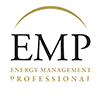 The Energy Management Process Seminar is designed to help candidates understand the energy management process and how it can be applied and serves as the final preparation for the Energy Management Professional (EMP) exam.
The Energy Management Process Seminar is designed to help candidates understand the energy management process and how it can be applied and serves as the final preparation for the Energy Management Professional (EMP) exam.


